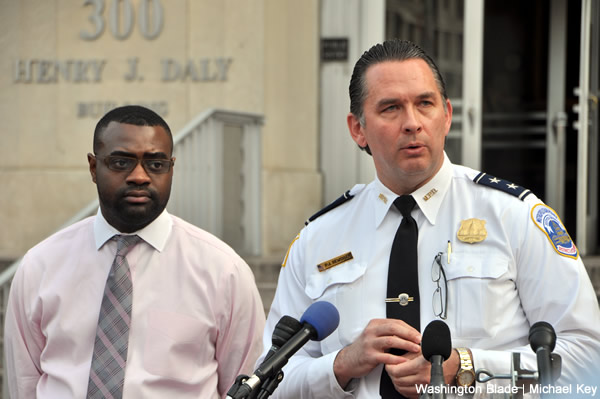Local
Human Rights Watch criticizes D.C. police in new report
Report claims police confiscation of condoms places sex workers at higher HIV risk
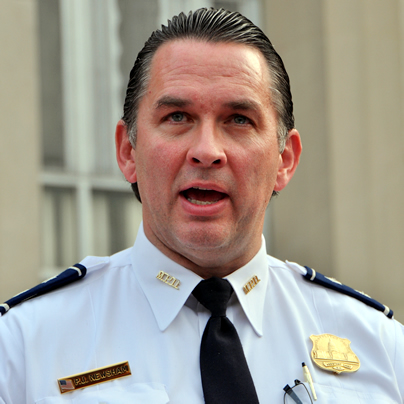
A new report concludes that the confiscation of condoms from prostitutes and other sex workers during police investigations places them at increased risk of HIV.
Human Rights Watch officially released the 12-page report at a press conference at the National Press Club on Thursday that includes interviews with more than 300 current or former sex workers, activists, law enforcement and public health officials in D.C., New York City, Los Angeles and San Francisco. These include Felicia C., a sex worker in Columbia Heights who said that police officers told her to throw away her condoms last December.
“I told them ‘No I am not throwing them in the garbage,’” she said, as noted in the report. “I don’t want to die!”
Others pointed to what they described to Human Rights Watch as the Metropolitan Police Department’s “3-condom rule.”
“In 2011 they locked me up in the 5th district,” said Nila R. “The cop told me I could have three condoms and threw the others out, I had 10 altogether. Also, an open condom is a charge. I’ve been locked up for it, the cops told me they were locking me up for an open condom.”
Human Rights Watch urges law enforcement and prosecutors in the four cities highlighted in the report to adopt policies that prohibit the use of condom possession as evidence against suspected sex workers. The report further calls upon the MPD, the New York, Los Angeles and San Francisco Police Departments to emphasize the importance of condoms to prevent the spread of HIV and other sexually transmitted diseases. It also urges the D.C. Council and New York and California lawmakers to either repeal or reform broad loitering laws designed to curb prostitution.
“Eliminating HIV infections is a national priority and ensuring the availability of condoms among those at highest risk is critical,” said Megan McLemore, senior health researcher at Human Rights Watch.
Transgender activist Ruby Corado, who is among those who spoke at the National Press Club, told the Blade that this report does not come as a surprise. The Department of Health distributed more than five million male and female condoms in 2011, but she stressed that policing policies outlined in the Human Rights Watch report undermine these programs.
“If you’re going to address HIV and AIDS, you want to make sure you address things that are important,” she said.
Assistant D.C. police chief Peter Newsham told the Blade that the MPD rarely uses condoms as evidence in prostitution-related cases. “It’s a very rare occurrence for us to seize condoms in a prostitution investigation,” he stressed. “The MPD is very much supportive of the city’s efforts to distribute condoms to help prevent the spread of HIV and AIDS.”
The Human Rights Watch report notes that Newsham said that he was “concerned” about reports that MPD officers stopped and searched suspected sex workers during “circumstances that suggested a lack of probable cause.” He told the Blade that those who experienced police harassment should contact the MPD.
Newsham went on to question the report’s accuracy.
“Human Rights Watch uses anecdotal examples that are really uncorroborated and unsupported to make their point,” he said. “That being said, there’s nothing to suggest either that they are true or not true. They could potentially be true; they could potentially be not true.”
Helping Individual Prostitutes Survive is one of the organizations that worked with Human Rights Watch on the report.
Cyndee Clay, the group’s executive director, told the Blade that her agency receives what she described as regular reports from sex workers who claim D.C. police officers have questioned the number of condoms they have in their possession. She urged the MPD to clarify its policy.
“They’re saying this isn’t something that’s happening on a regular basis and this is not something that they’re doing, than we’re asking them to work with us to clarify or do something to state it’s not happening,” said Clay. “Regardless of whether or not this is something that every officer is doing, this is something certain members of the community has experienced; more than one member of the community has experienced and it’s something that even if it happens a couple of times has a chilling effect on everyone else’s capacity and everyone else’s ability to carry condoms.”
District of Columbia
Eleanor Holmes Norton ends 2026 reelection campaign
Longtime LGBTQ rights supporter introduced, backed LGBTQ-supportive legislation
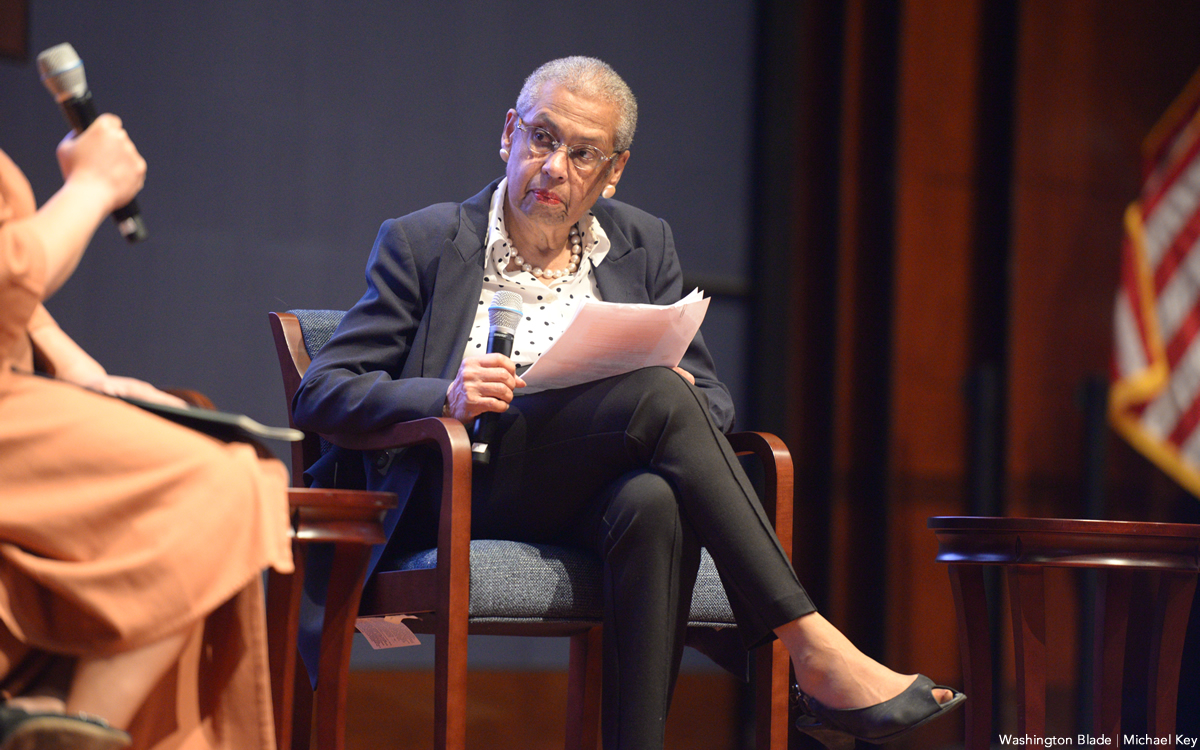
The reelection campaign for D.C. Congressional Delegate Eleanor Holmes Norton, who has been an outspoken supporter of LGBTQ rights since first taking office in 1991, filed a termination report on Jan. 25 with the Federal Elections Commission, indicating she will not run for a 19th term in the U.S. House of Representatives.
Norton’s decision not to run again, which was first reported by the online news publication NOTUS, comes at a time when many of her longtime supporters questioned her ability to continue in office at the age of 88.
NOTUS cited local political observers who pointed out that Norton has in the past year or two curtailed public appearances and, according to critics, has not taken sufficient action to oppose efforts by the Trump-Vance administration and Republican members of Congress to curtail D.C.’s limited home rule government.
Those same critics, however, have praised Norton for her 35-year tenure as the city’s non-voting delegate in the House and as a champion for a wide range of issues of interest to D.C. LGBTQ rights advocates have also praised her longstanding support for LGBTQ rights issues both locally and nationally.
D.C. gay Democratic Party activist Cartwright Moore, who has worked on Norton’s congressional staff from the time she first took office in 1991 until his retirement in 2021, points out that Norton’s role as a staunch LGBTQ ally dates back to the 1970s when she served as head of the New York City Commission on Human Rights.
“The congresswoman is a great person,” Moore told the Washington Blade in recounting his 30 years working on her staff, most recently as senior case worker dealing with local constituent issues.
Norton has been among the lead co-sponsors and outspoken supporters of LGBTQ rights legislation introduced in Congress since first taking office, including the currently pending Equality Act, which would ban employment discrimination based on sexual orientation and gender identity.
She has introduced multiple LGBTQ supportive bills, including her most recent bill introduced in June 2025, the District of Columbia Local Juror Non-Discrimination Act, which would ban D.C. residents from being disqualified from jury service in D.C. Superior Court based on their sexual orientation or gender identity.
For many years, Norton has marched in the city’s annual Pride parade.
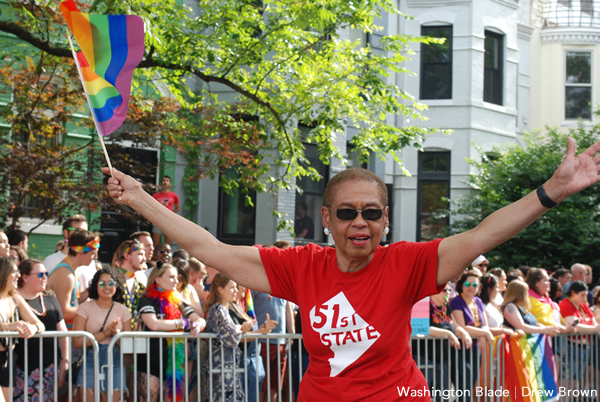
Her decision not to run for another term in office also comes at a time when, for the first time in many years, several prominent candidates emerged to run against her in the June 2026 D.C. Democratic primary. Among them are D.C. Council members Robert White (D-At-Large) and Brooke Pinto (D-Ward 2).
Others who have announced their candidacy for Norton’s seat include Jacque Patterson, president of the D.C. State Board of Education; Kinney Zalesne, a local Democratic party activist; and Trent Holbrook, who until recently served as Norton’s senior legislative counsel.
“For more than three decades, Congresswoman Norton has been Washington, D.C.’s steadfast warrior on Capitol Hill, a relentless advocate for our city’s right to self-determination, full democracy, and statehood,” said Oye Owolewa, the city’s elected U.S. shadow representative in a statement. “At every pivotal moment, she has stood firm on behalf of D.C. residents, never wavering in her pursuit of justice, equity, and meaningful representation for a city too often denied its rightful voice,” he said.
A spokesperson for Norton’s soon-to-close re-election campaign couldn’t immediately be reached for a comment by Norton on her decision not to seek another term in office.
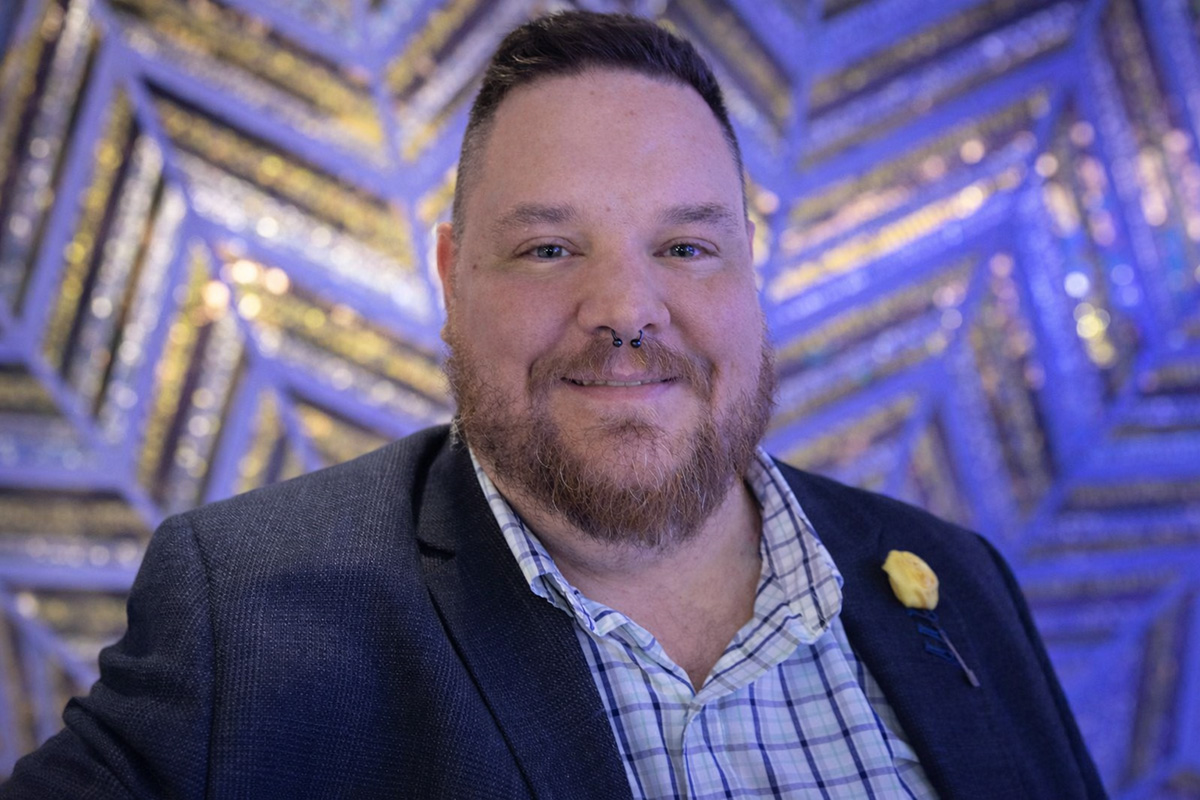
The Comings & Goings column is about sharing the professional successes of our community. We want to recognize those landing new jobs, new clients for their business, joining boards of organizations and other achievements. Please share your successes with us at [email protected].
The Comings & Goings column also invites LGBTQ+ college students to share their successes with us. If you have been elected to a student government position, gotten an exciting internship, or are graduating and beginning your career with a great job, let us know so we can share your success.
Congratulations to R. Warren Gill III, M.Div., M.A. on being appointed as the development manager at HIPS. Upon his appointment, Gill said, “For as long as I’ve lived in Washington, D.C., I’ve followed and admired the life-saving work HIPS does in our communities. I’m proud to join the staff and help strengthen the financial support that sustains this work.”
Gill will lead fundraising strategy, donor engagement, and institutional partnerships. HIPS promotes the health, rights, and dignity of individuals and communities impacted by sexual exchange and/or drug use due to choice, coercion, or circumstance. HIPS provides compassionate harm reduction services, advocacy, and community engagement that is respectful, non-judgmental, and affirms and honors individual power and agency.
Gill has built a career at the intersection of progressive politics, advocacy, and nonprofit leadership. Previously he served as director of communications at AIDS United, supporting national efforts to end the HIV epidemic. Prior to that he had roles including; being press secretary for Sen. Bernie Sanders during the 2016 presidential primary, and working with the General Board of Church and Society, the United Methodist Church, the denomination’s social justice and advocacy arm.
Gill earned his bachelor’s degree in philosophy and religious studies, Jewish Studies, Stockton University; his master’s degree in political communication from American University, where his graduate research focused on values-based messaging and cognitive linguistics; and his master of Divinity degree from the Pacific School of Religion.
District of Columbia
Judge denies D.C. request to dismiss gay police captain’s anti-bias lawsuit
MPD accused of illegally demoting officer for taking family leave to care for newborn child
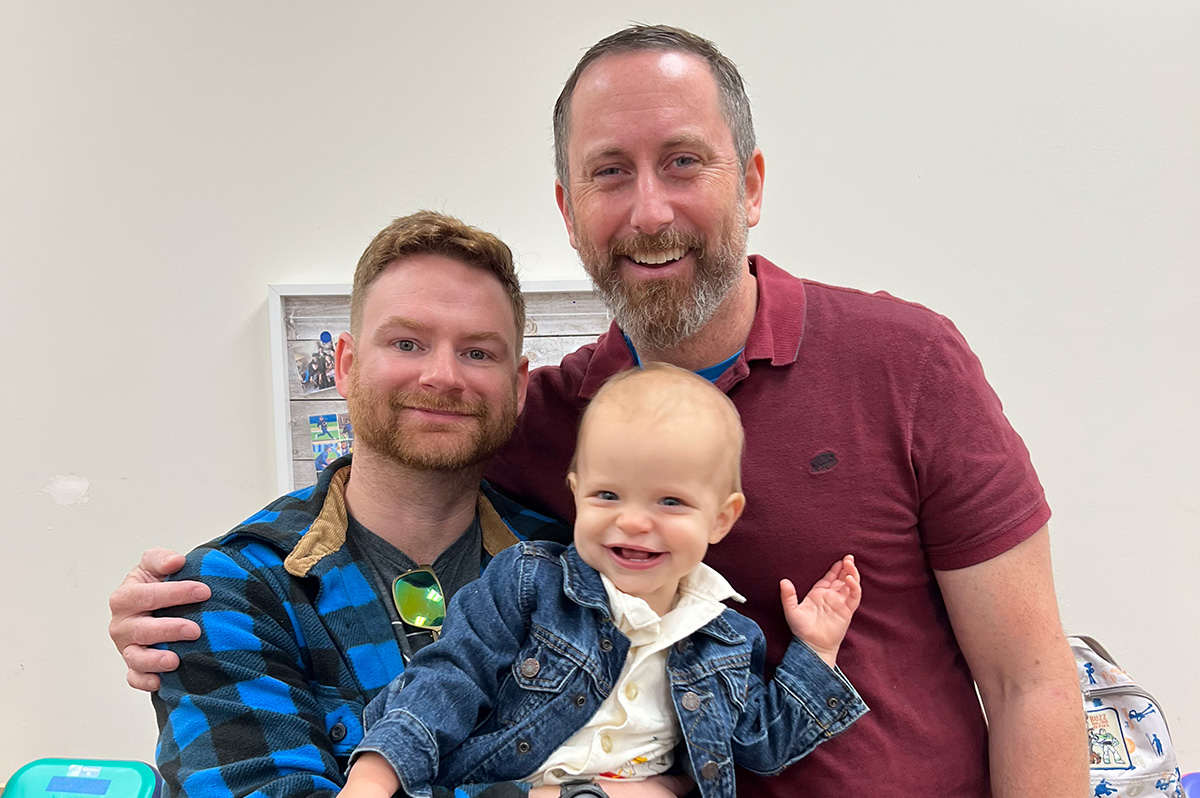
A U.S. District Court judge on Jan. 21 denied a request by attorneys representing the D.C. Metropolitan Police Department to dismiss a lawsuit filed by a gay captain accusing police officials of illegally demoting him for taking parental leave to join his husband in caring for their newborn son.
The lawsuit filed by Capt. Paul Hrebenak charges that police officials violated the U.S. Family and Medical Leave Act, a similar D.C. family leave law, and the Constitution’s Equal Protection Clause by refusing to allow him to return to his position as director of the department’s School Safety Division upon his return from parental leave.
It says police officials transferred Hrebenak to another police division against his wishes, which was a far less desirable job and was the equivalent of a demotion, even though it had the same pay grade as his earlier job.
In response to a motion filed by attorneys with the Office of the D.C. Attorney General, which represents and defends D.C. government agencies against lawsuits, Judge Randolph D. Moss agreed to dismiss seven of the lawsuit’s 14 counts or claims but left in place six counts.
Scott Lempert, the attorney representing Hrebenak, said he and Hrebenak agreed to drop one of the 14 counts prior to the Jan. 21 court hearing.
“He did not dismiss the essential claims in this case,” Lempert told the Washington Blade. “So, we won is the short answer. We defeated the motion to dismiss the case.”
Gabriel Shoglow, a spokesperson for the Office of the D.C. Attorney General, said the office has a policy of not commenting on pending litigation and it would not comment on the judge’s ruling upholding six of the lawsuit’s initial 14 counts.
In issuing his ruling from the bench, Moss gave Lempert the option of filing an amended complaint by March 6 to seek the reinstatement of the counts he dismissed. He gave attorneys for the D.C. attorney general’s office a deadline of March 20 to file a response to an amended complaint.
Lempert told the Blade he and Hrebenak have yet to decide whether to file an amended complaint or whether to ask the judge to move the case ahead to a jury trial, which they initially requested.
In its 26-page motion calling for dismissal of the case, filed on May 30, 2025, D.C. Office of the Attorney General attorneys argue that the police department has legal authority to transfer its officers, including captains, to a different job. It says that Hrebenak’s transfer to a position of watch commander at the department’s First District was fully equivalent in status to his job as director of the School Safety Division.
“The Watch Commander position is not alleged to have changed plaintiff’s rank of captain or his benefits or pay, and thus plaintiff has not plausibly alleged that he was put in a non-equivalent position,” the motion to dismiss states.
“Thus, his reassignment is not a demotion,” it says. “And the fact that his shift changed does not mean that the position is not equivalent to his prior position. The law does not require that every single aspect of the positions be the same.”
Hrebenak’s lawsuit states that “straight” police officers have routinely taken similar family and parental leave to care for a newborn child and have not been transferred to a different job. According to the lawsuit, the School Safety Division assignment allowed him to work a day shift, a needed shift for his recognized disability of Crohn’s Disease, which the lawsuit says is exacerbated by working late hours at night.
The lawsuit points out that Hrebenak disclosed he had Crohn’s Disease at the time he applied for his police job, and it was determined he could carry out his duties as an officer despite this ailment, which was listed as a disability.
Among other things, the lawsuit notes that Hrebenak had a designated reserved parking space for his earlier job and lost the parking space for the job to which he was transferred.
“Plaintiff’s removal as director at MPD’s School Safety Division was a targeted, premeditated punishment for his taking statutorily protected leave as a gay man,” the lawsuit states. “There was no operational need by MPD to remove plaintiff as director of MPD’s School Safety Division, a position in which plaintiff very successfully served for years,” it says.
In another action to strengthen Hrebenak’s opposition to the city’s motion to dismiss the case, Lempert filed with the court on Jan. 15 a “Notice of Supplemental Authority” that included two controversial reports that Lempert said showed that former D.C. Police Chief Pamela Smith put in place a policy of involuntary police transfers “to effectively demote and end careers of personnel who had displeased Chief Smith and or others in MPD leadership.”
One of the reports was prepared by the Republican members of the House Oversight and Government Reform Committee and the other was prepared by the office of Jeanine Pirro, the U.S. attorney for D.C. appointed by President Donald Trump.
Both reports allege that Smith, who resigned from her position as chief effective Dec. 31, pressured police officials to change crime reporting data to make it appear that the number of violent crimes was significantly lower than it actually was by threatening to transfer them to undesirable positions in the department. Smith has denied those claims.
“These findings support plaintiff’s arguments that it was the policy or custom of MPD to inflict involuntary transfers on MPD personnel as retaliation for doing or saying something in which leadership disapproved,” Lempert says in his court filing submitting the two reports.
“As shown, many officers suffered under this pervasive custom, including Capt. Hrebenak,” he stated. “Accordingly, by definition, transferred positions were not equivalent to officers’ previous positions,” he added.

